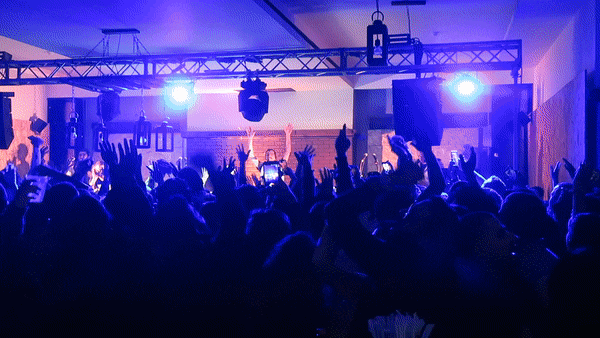47Soul navigates government censorship and protest music
The first lady of the United States, Jill Biden, introduced the inaugural Song for Social Change Special Merit Award at the 2023 Grammy Awards, saying: “Songs can unite, inspire and ultimately change the world.” She left out how they can also land you in jail.
The Award went to the Iranian protest song “Baraye,” by Shervin Hajipour. The song was created in support of protests in Iran that followed the death of Mahsa Amini–a 22-year old woman who was arrested by the country’s “morality police” for not following the country’s hijab requirement. She died in hospital on September 16, 2022, under suspicious circumstances. The song went viral on TikTok, and Hajipour was jailed, but then released on October 4. He is currently out on bail and awaiting trial.
According to the Grammy’s submission criteria, to qualify for the Best Song For Social Change Special Merit Award, songs should contain “lyrical content that: addresses a timely social issue; explores a subject impacting a community of people in need; and promotes awareness, raises consciousness, and builds empathy.”
So, what happens if your country’s government is so corrupt their censorship laws don’t permit lyrics with this type of content? How do you get your message across without risking incarceration?
An electronic music group from the Kingdom of Jordan offers an example of protest music that successfully navigates the government censorship issues that are all too common in the Middle East and North Africa. The band? 47Soul. The song? “Shireen.”
In Jordan, professional musicians rarely mention public figures by name when they’re performing. Why? Speak out against the monarchy, the government, or religion, and risk getting arrested. Even though there are no formal censorship laws on the books to control live music performance, artists know that secret police may be stationed in any given audience, which achieves a similar effect. Most musicians self-censor to avoid trouble, making it unusual that a band from Jordan chose to even title their recent release “Shireen.”
“Shireen” honors the late Palestinian-American journalist Shireen Abu Akleh. In May 2022, she was covering a refugee camp raid in Jenin when, according to witnesses, an Israeli Defense Force soldier shot and killed her. She wore both a helmet and a vest that clearly marked her as a journalist at the time.
In a rare unanimous statement, the UN Security Council condemned the incident and called for an immediate investigation. The Israeli Defense Force (IDF) released the results of its probe into the incident in September 2022, admitting for the first time that an Israeli soldier was likely responsible for Abu Akleh’s death, but not going so far as to acknowledge any wrongdoing.
In protest, 47Soul released “Shireen” just a few weeks following her killing. The band often uses their platform to foster global solidarity with Palestine, but “Shireen” marks the first time in the band members’ nine years together that they mention a current public figure by name at all in their music.
Aside from the song title, 47Soul does not mention Shireen Abu Akleh’s name again in the lyrics. Unless one of the band mates chose to mention Abu Akleh while introducing the song during a show, only those who have sought out the track ahead of time would know about the tribute. As a result, the band would not risk challenging censorship boundaries if they perform the track live for home crowds in Jordan.
“Shireen” has lyrics in both Arabic and English, which widens the audience for the messages they seek to convey. In Arabic, Walaa Sbait’s haunting bass vocals take the listener to Calvary Hill, outside Jerusalem, where Jesus was said to be crucified. The lyrics then invert a Bible verse from Luke 23:34, pleading: “Whether they know what they do or not, oh Father, do not forgive them.” With these lines and by titling the track “Shireen,” 47Soul draws attention to the brutality of Abu Akleh’s death.
47Soul jumped from the alternative Arabic music scene to the global stage in recent years. They have toured widely, dancing across stages at major international music festivals and even performing dabkeh—a celebratory line dance tradition found throughout the Levant and its diasporas—on top of the famous tiny desk at NPR Music . 47Soul blends tradition with global pop and politics. On their track “Shireen,” the beat brings reggaeton to mind by slowing down a classic Arab rhythm.
The members of 47Soul have lived in London since 2014, where they are not subject to strict censorship. Still, the band performs often to home crowds in the Middle East and North Africa, which is likely why they have kept their songs largely abstract.
Bandmates Tareq Abu Kwaik, Walaa Sbait, and Ramzy Suleiman are all too familiar with tragedies like Abu Akleh’s. They are all the sons of Palestinian refugees, and every Palestinian has stories of Israeli State violence. Take 47Soul’s drummer, vocalist, and lead dancer, Walaa Sbait, for example. Sbait’s ancestors come from the village of Iqrit. Starting in 1948, Iqrit was one of hundreds of Palestinian villages that the Israeli Defense Force razed to the ground, forcing villagers to flee their ancestral homes. Sbait’s grandparents escaped to Haifa, Israel, where Sbait was born. Based on this family history, Sbait refers to himself as an internal refugee inside Israel, since he cannot return to his home village that Israeli soldiers destroyed.
47Soul released their tribute to the Palestinian victims of Israeli state violence, “Shireen,” as a lyric video on YouTube. The lyrics appear over a photo of a packed crowd waving Palestinian flags in front of the Dome of the Rock, also known as Al-Aqsa, Jerusalem’s iconic golden-domed shrine. Why this photo?
47Soul might have chosen the image of Al-Aqsa for the “Shireen” lyric video because Jerusalem and its shrines are some of the most sensitive locations in the ongoing power struggles of the Israel-Palestine conflict. In 2017, former president Donald Trump reversed U.S. policy by officially recognizing Jerusalem as Israel’s capital and ordering the relocation of the U.S. Embassy there from Tel Aviv.
In April 2022, Israeli riot police injured some 152 Palestinians in the shadow of Al-Aqsa, prompting Jordan’s King Abdullah (a direct descendent of Islam’s Prophet Muhammad, and the official custodian of Jerusalem’s holy sites) to warn that Israel only holds back efforts towards peace in the region with such acts of violence against Muslim worshippers. Like Al-Aqsa, Shireen Abu Akleh has become a powerful symbol in the wider Israel-Palestine struggle.
Abu Akleh’s family continues to seek justice on her behalf. Family members and Al Jazeera–the news organizations for which Abu Akleh worked–have filed a complaint with the International Criminal Court (ICC). Her family members have also met with U.S. Secretary of State Antony Blinken to urge a U.S.-backed investigation, and briefly met Pope Francis before a mass given in Abu Akleh’s honor.
The band insists on performing a full picture of the Palestinian experience than suffering alone. 47Soul has brought audiences to their feet across continents. From Chile to Glastonbury, the joy is palpable as they teach audiences to dance dabkeh. And so, although 47Soul’s protest song may not qualify for any Grammy awards, their music and dance performance become hopeful physical expressions of the persistence of the Palestinian people through challenge after challenge.
Liza Munk researches and writes about underrepresented cultures in the U.S.A. and Middle East. From 2018-2019, Liza lived in Amman, Jordan as a Fulbright Fellow to study the city’s alternative Arabic music scene. She received a Ph.D. in Ethnomusicology, the cultural anthropology of music, from University of California, Santa Barbara.

